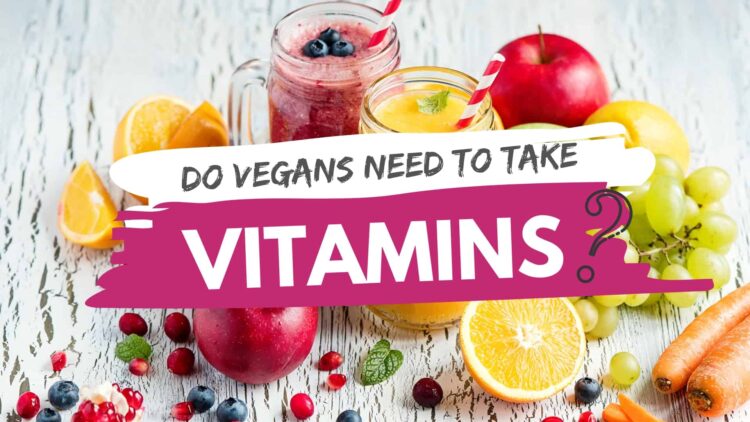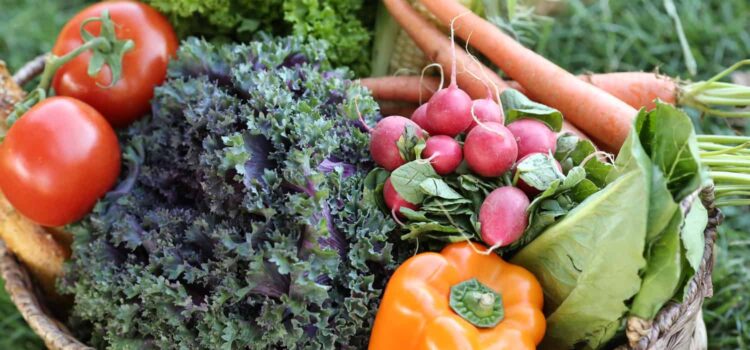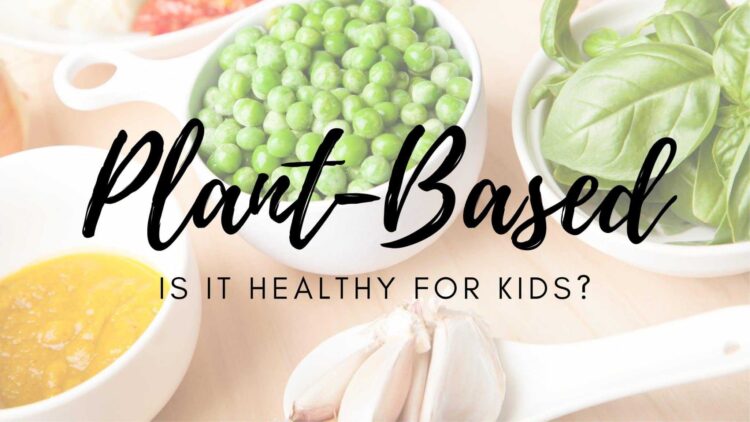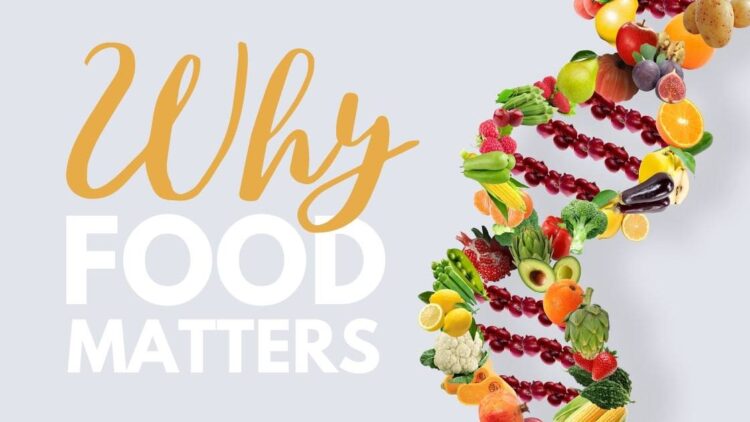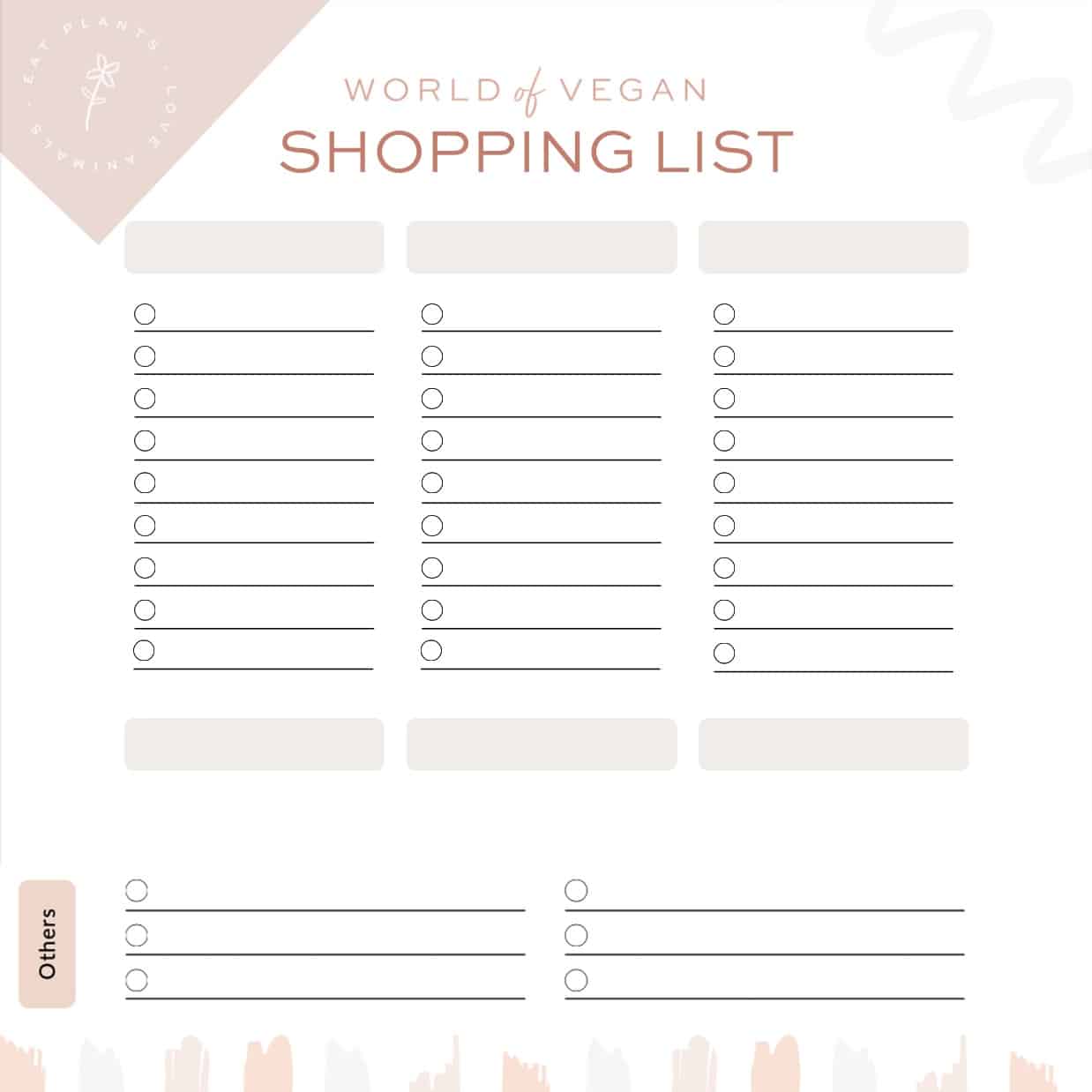Are You Getting These 7 Essential Vegan Nutrients?
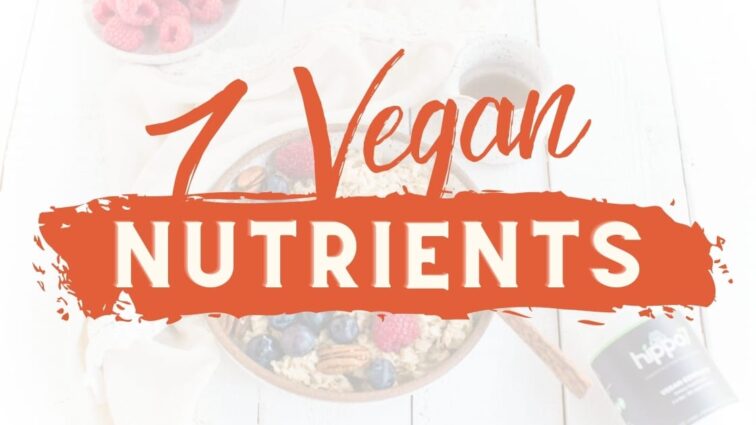
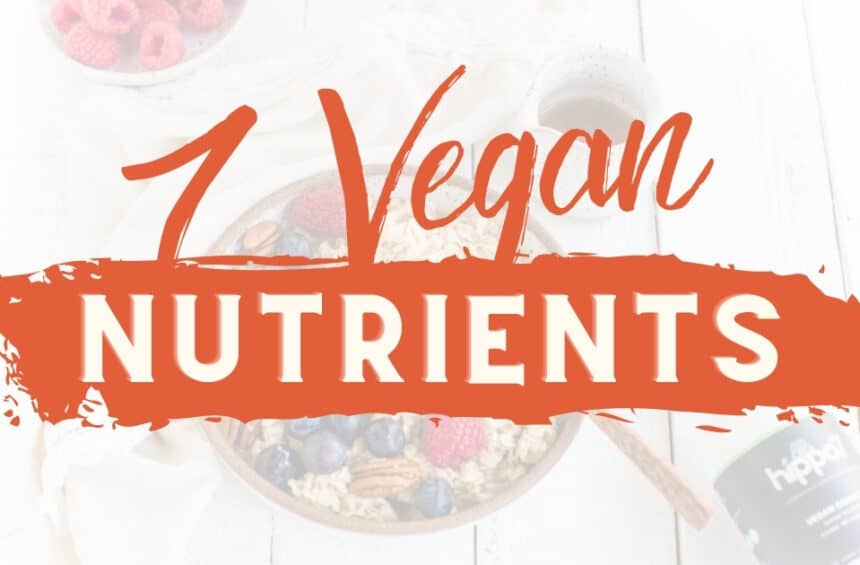
This article was sponsored by our friends at Hippo7 vitamins—made by vegans for vegans! Hippo7’s vegan vitamins are specially formulated for plant-eaters and include all 7 of the essential vegan nutrients we’re talking about today.
Eating vegan comes with a plethora of health benefits—like reduced risk of many debilitating diseases including cardiovascular disease, Type II diabetes, and certain cancers. But like anyone—vegan or not—it’s important to make sure we’re getting all our essential vitamins.
If you’ve perfected your plant-based diet to the point where you get absolutely everything you need every day from your food, that’s incredible! More power to you. But the vast majority of us are far from perfect. I certainly am. And that’s okay! As long as we can get all of the essential vegan vitamins and nutrients in somehow—whether it be through whole foods, fortified foods, or supplements—we’re golden!
Table of Contents
Essential Vegan Vitamins
There are a handful of nutrition essentials—like Vitamin B12 and Vitamin D—that can be hard to get consistently.
For instance, you can get all the Vitamin D you need by letting the sun hit your skin for enough time every day. But do you actually spend enough time in the sun every single day? I sure don’t. Many of us who work inside or hibernate indoors during the winter don’t get enough Vitamin D naturally. Even living in sunny California, I take a Vitamin D supplement to cover my bases.
Today we’re highlighting 7 essential vegan vitamins that you may want to ensure you’re getting regularly. We’re covering:
- Vitamin B12
- Omega 3 Fatty Acids
- Vitamin D
- Iodine
- Calcium
- Iron
- Zinc
Luckily, there are many ways to get these in without turning to animal products. You can get these through the foods you eat, fortified foods, and of course the easiest way to cover your bases—by taking vitamins!
Vitamin B12
This vitamin gets the most attention because it’s the only nutrient not easily available in plant foods. At least not from plants that have been washed until they’re sparkly clean the way we eat them today.
Non-vegans get B12 from meat, dairy, and eggs, as it’s produced in the digestive system of animals. Since vegans don’t eat animal products, it’s very important to take a supplement or eat fortified foods. According to Registered Dietitian Taylor Wolfram:
“The only reliable sources of vitamin B12 in a vegan diet are fortified foods and supplements.”
Because our bodies can take a while to use up our Vitamin B12 stores, many people make the incorrect assumption that since they haven’t eaten animal products in a while and their B12 levels are fine, there is no need to supplement. That’s not the case.
Vitamin B12 is extremely important for neurological function as well as the production of red blood cells in our bodies and DNA and RNA synthesis. Don’t risk your brain health—take your B12!
Visit our vegan Vitamin B-12 guide for more information on this important nutrient.
Omega 3s (Specifically DHA & EPA)
Omega 3 fatty acids have also been a central focus in the vegan nutrition space because so many people assume you can only get Omega’s from the fatty part of fish (or fish oil supplements). Not so!
There are three main dietary types of omega-3s that are important for humans:
- ALA (alpha-linolenic acid)
- EPA (eicosapentanoic acid)
- DHA (docosahexaenoic acid)
ALA is found in plant foods like walnuts and flaxseeds, and our bodies contain enzymes that can convert them to EPA and DHA. While this can get us some EPA and DHA, it’s often not enough, which is why registered dietitians advise supplementing DHA (and/or EPA) as well.
No problem. DHA actually originates in algae! Fish build up a store of DHA from eating algae. And just like fish, humans can get plenty of DHA straight from the source. But since few of us are foraging for dinner in the deep ocean, that’s where plant-derived DHA and EPA supplements come in handy.
Omega 3s have been linked to heart health and may also be helpful in preventing cognitive decline with age, so friends, let’s make sure we’re getting plenty!
Visit our vegan DHA guide to learn more.
Vitamin D
Ahh, the sunshine vitamin. When our skin is exposed to direct sun our bodies produce vitamin D. Through most of human evolution our ancestors spent the majority of their days outside, soaking up the sun rays. And with that much sun exposure, their bodies synthesized all the vitamin D they could possibly need.
Now that we’ve moved into indoor homes, indoor workplaces, even indoor gyms and socializing locations, many human beings are hidden away from the sun and at risk for vitamin D deficiency.
Did you know that vitamin D is actually a hormone? One of the many things it does in our body is assist with calcium absorption. Prolonged vitamin D deficiency can lead to weakened bones and even rickets. So how do we get it?
Easy. Take a vitamin D supplement. But wait! Before you pop some vitamin D, beware. Most generic brands (and even prescription vitamin D that you doctor will order if you’re deficient) is animal-derived.
There are two types of Vitamin D:
- Vitamin D2 (always plant-derived)
- Vitamin D3 (animal derived or plant-derived from lichen)
You can now easily find vegan vitamin D supplements. Hippo7 vitamin contain D3 sourced from lichen. They use Vitashine™, a Vegan D3 ingredient that is the same form that our bodies produce after sun exposure.
Visit our Vegan Vitamin D Guide to learn more.
Iodine
I only recently realized that Iodine is a big deal. And if you’re vegan and not eating iodized table salt, you may not be getting enough of it.
Iodine deficiency leads to hypothyroidism (symptoms include fatigue, weight gain, lethargy, and mood swings), so please be sure you’re getting enough.
You can get iodine from plant-based foods such as kelp, nori, and produce grown in iodine rich soil—but many vegans don’t get enough from these sources alone. You also can easily hit the RDA (Recommended Daily Allowance) by consuming just ¼ teaspoon of iodized salt.
If you’ve switched from iodized table salt to sea salt or pink Himalayan salt, beware! Standard American salt was Iodized for a reason—so we don’t become deficient in this important nutrient, so you may need to take a supplement instead.
Calcium
Most of us grew up believing that you need to drink cow’s milk to get calcium and strong bones. This milk-industry-driven myth is still somehow weaving it way through society. If you ask a person at random, “Where do you get your calcium?” they will very likely respond, “Milk!”
Thankfully a quick Google search or chat with your doctor or a registered dietitian will crush that myth in your mind, and help you recognize the plethora of calcium in plants! All plants have calcium, but some have a particularly rich load, like dark leafy greens (such as kale), broccoli, bok choy, kidney beans, and sesame seeds (and tahini).
Needless to say, it’s easy to get plenty of calcium on a plant-based diet if you’re loading up on a variety of healthy whole foods. But what if you lean too heavily on cookies, chips, and processed foods? When those times come around, it can’t hurt to cover your bases with a calcium supplement.
Also, keep this in mind. For the vast majority of human history, we got our calcium from plants. Dairy products didn’t even become a part of the human diet until just 10,000 years ago, and even today there are many parts of the world where people don’t consume cow’s milk.
Iron
The plant kingdom is rich in iron. Look to foods like beans, lentils, spinach, tofu, leafy greens, sea vegetables, and nuts.
But there is a difference between the iron found in plant foods (non-heme iron) and the iron in meat (heme iron). Plant-derived iron can be more challenging for your body to absorb, which is why it’s important to make sure you’re getting enough through plant based whole foods, fortified foods (like cereals), and/or supplements.
Zinc
Zinc is another element that everyone—vegan and not—should make sure they’re getting. It’s important for our immune system, metabolism, creating DNA. Vegan sources of zinc include beans, pumpkin seeds, wheat germ, tahini, nuts, quinoa, oatmeal, and soy products. Easy peasy, but when in doubt, vegan vitamins can cover your bases!
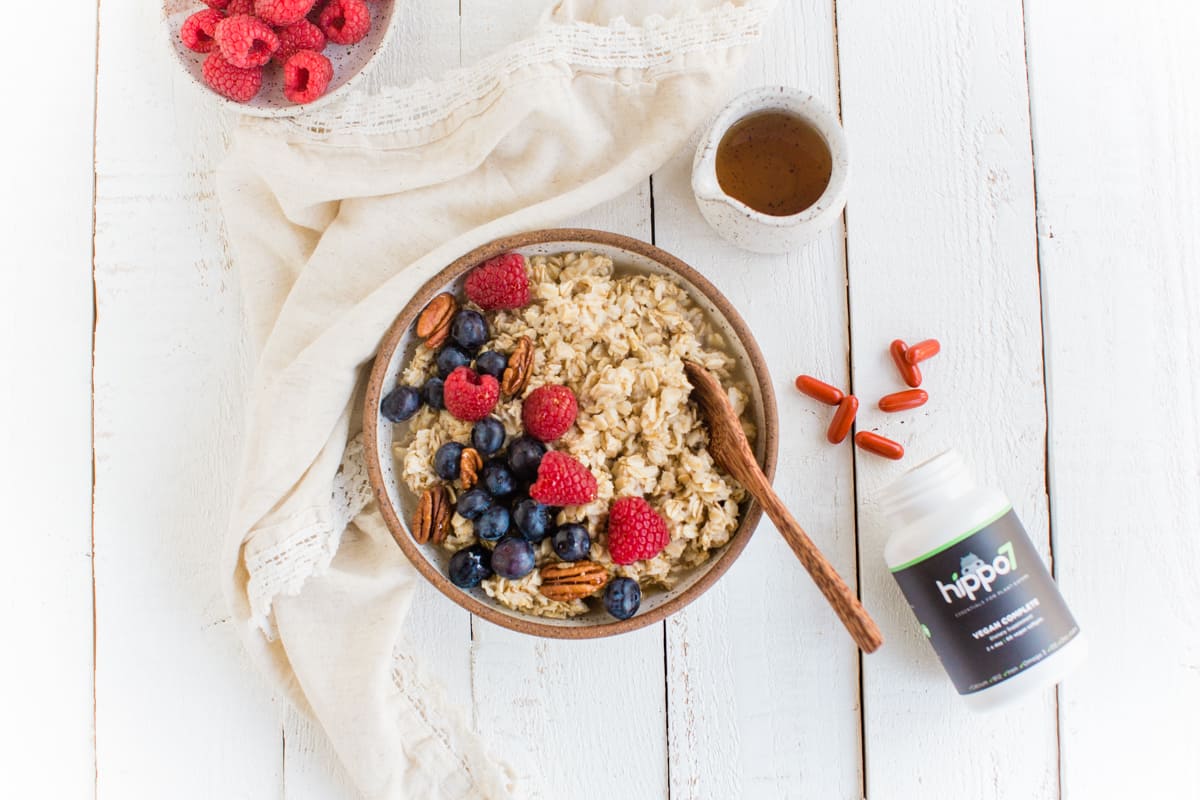
Get All Seven With Hippo7’s Vegan Multivitamins
We’re delighted to be collaborating with Hippo7, a brand of vegan multivitamins designed specifically for vegans by vegans. Hippo7 is founded by vegans on this mission:
“To ensure everyone on a plant-based diet is nutritionally supported and to help expand the movement by giving new vegans peace of mind, so they can continue this amazing journey.”
Hippo7’s multivitamins contain all 7 of the essential vegan vitamins we discussed today and are always:
- 100% Vegan
- Non-GMO
- Soy-Free
- Gluten-Free
- No Synthetic Fillers
- No Artificial Colors
They are made in a state-of-the-art facility in the United States. Their manufacturer is GMP certified (Good Manufacturing Practices), USP verified (U.S. Pharmacopeial Convention), FDA registered (United States Food & Drug Administration), and a member of the NSP (National Science Foundation).
Hippo7 is my current vitamin of choice, and my bloodwork has been great!
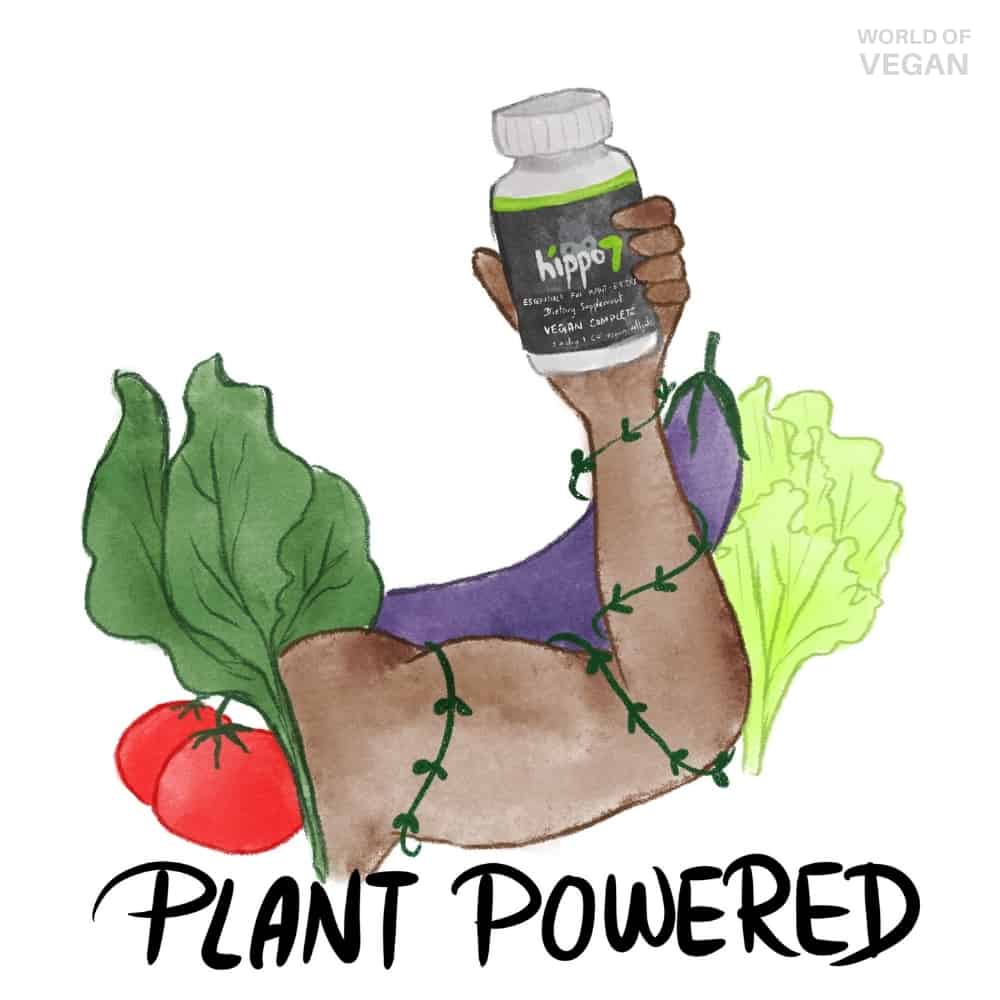
Related Vegan Nutrition Articles
- How to Get All Your Nutrients As A Vegan
- Guide to Vegan Registered Dietitians
- Is Water Vegan?
- The 5 Best Nutrients for Plant-Based Eaters to Prevent Hair Loss
- Where to Find Credible Vegan Nutrition Information
- I’m Vegan…Do I Need to Take Vitamins?
This article about essential vegan vitamins was written by Michelle Cehn. The information presented here is not to be construed as medical advice or used to diagnose, treat, cure or prevent any condition or disease. Please note that this article may contain affiliate links which supports our work at World of Vegan. Many thanks to our friends at Hippo7 for supporting our work at World of Vegan!






